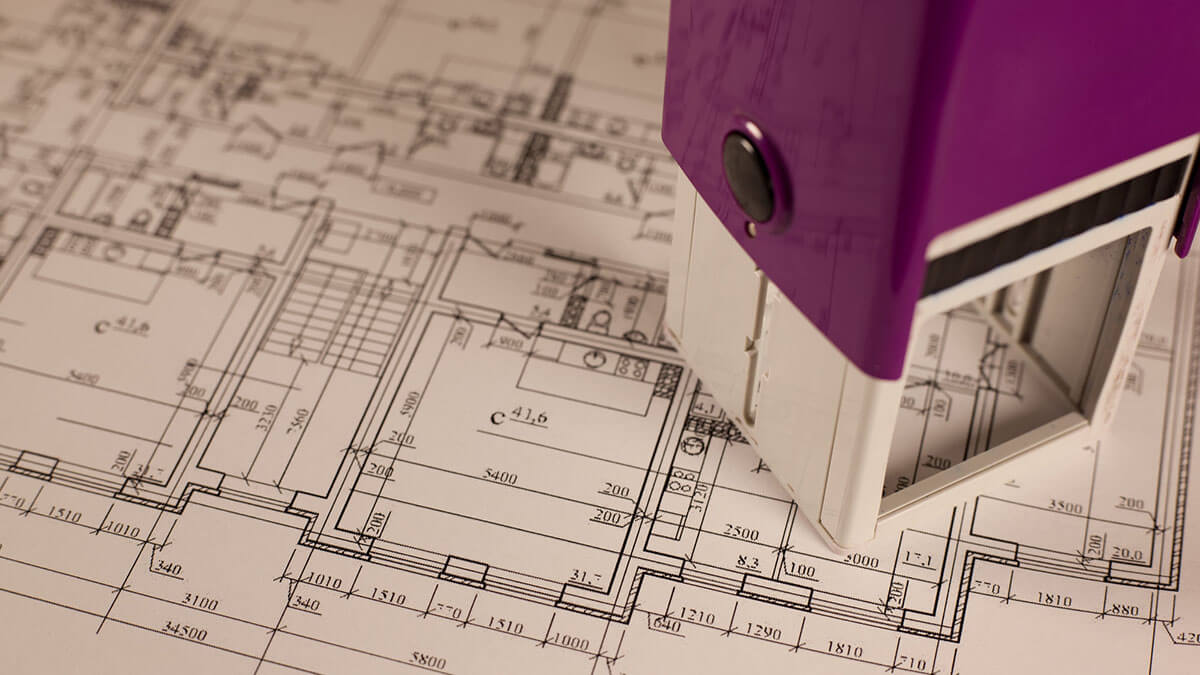Selling a house with unpermitted work can feel like you’re stuck between a rock and a hard place. Maybe it was a DIY project that got a little too ambitious, or work a previous owner never cleared with the city. Either way, you’re probably wondering if it’s even legal to sell your home, how much this will hurt your sale price, or if buyers will run the other way.
The good news? You can sell a house with unpermitted work, you just need to know your options. In this guide, we’ll break down what unpermitted work actually means, how it affects your sale, and the smartest ways to move forward.
If you’re looking to avoid the hassle of permits, inspections, and last-minute surprises, working with an iBuyer might be your best bet. You’ll get a data-backed cash offer and sell on your terms, no repairs required.
Compare Cash Offers from Top Home Buyers. Delivered by Your Local iBuyer Certified Specialist.
One Expert, Multiple Offers, No Obligation.
Selling With Unpermitted Work
- What Is Unpermitted Work and Why It Matters
- How to Know if Your Home Has Unpermitted Work
- Selling Your Home With Unpermitted Work: Your Options
- What Happens If You Don’t Disclose Unpermitted Work
- How Unpermitted Work Affects Sale Price and Buyer Interest
- Reilly’s Two Cents: Tips From the Field
- Selling a Home With Unpermitted Work
- Frequently Asked Questions
What Is Unpermitted Work and Why It Matters
Unpermitted work is any renovation, addition, or upgrade made to a home without getting the required approval from your local building authorities. This usually includes projects like finishing a basement, building a deck, converting a garage, or moving electrical or plumbing systems. If a permit was required but never pulled, or if the final inspection never happened, it’s considered unpermitted.
Why does this matter when selling a house? Because unpermitted work can throw up red flags for buyers, lenders, and insurers. It may not meet building codes, which can create safety concerns. It might also affect the value of your home or make it harder for the buyer to get financing. Even if everything “looks fine,” the lack of proper documentation can scare people off.
Local rules vary, but the general rule of thumb is this: if the work changes the structure, electrical, or plumbing in any way, it probably requires permitting. When in doubt, always check with your city or county building department. They can tell you what complies with local code and what doesn’t.
How to Know if Your Home Has Unpermitted Work
Sometimes, unpermitted work isn’t obvious, especially if you weren’t the one who did it. A previous owner might’ve finished the attic, built a room addition, or moved plumbing without going through the right channels. If you’re not sure whether your home has unpermitted work, there are a few ways to find out.
Start with your home’s original blueprints, if you have them. Compare what’s on paper to what’s actually in your house. Additions that show up in real life but not on the plans could be a sign something wasn’t permitted.
Next, check with your local building department. Many cities keep detailed permit records that are open to the public. You can ask for a copy of your home’s permit history and see if any projects were approved, and if final inspections were completed.
Another smart move is to bring in a home inspector or licensed contractor. They can spot work that looks “off” or doesn’t meet modern codes. It’s not an official ruling, but it can help you figure out what’s worth investigating before listing your home.
Selling Your Home With Unpermitted Work: Your Options
If your home has unpermitted work, you’ve got more than one way to handle it. The best path depends on your timeline, budget, and how much effort you’re willing to put in before selling. Let’s break down your main choices.
Option 1: Disclose the Unpermitted Work and Sell As-Is
This is often the simplest route. You let buyers know upfront that there’s unpermitted work, and you sell the home in its current condition. It’s legal in most areas, as long as you disclose what you know. Be prepared for a lower sale price or limited buyer pool, since not everyone wants to take on the risk.
Option 2: Get Retroactive Permits
Some cities allow you to apply for permits after the work is already done. This process usually involves inspections and possibly making changes to bring everything up to code. It can take weeks or months and cost anywhere from a few hundred to several thousand dollars, depending on the scope of the work.
Option 3: Remove or Correct the Work
If the work was done poorly or poses safety issues, tearing it out might be the smartest move. In other cases, you can bring it up to code and then apply for a permit. This route can be costly and time-consuming, but it may help you attract traditional buyers and improve your home’s value.
Option 4: Sell to an iBuyer
iBuyers are companies that purchase homes directly, often in as-is condition. Many are open to homes with unpermitted work, as long as the structure is safe and the issues are clearly disclosed. You’ll get a fast, fair offer without having to worry about making repairs or dealing with city paperwork.
Option 5: Sell to a Real Estate Investor
Investors are often more flexible than traditional buyers. They’re usually looking for properties with potential and may not mind tackling permitting issues themselves. This option is great if you want a quick sale and don’t mind trading some equity for speed.
Option 6: Sell to a Contractor or Developer
If your home is in a hot area or has development potential, a contractor or developer might see value where others don’t. They often look for fixer-uppers they can renovate or rebuild, and they understand how to handle code issues. You may get a solid offer without needing to lift a hammer.
What Happens If You Don’t Disclose Unpermitted Work
Skipping disclosure might seem like an easy way out, but it can cause big problems down the line. In most states, sellers are legally required to share anything they know about unpermitted work. If you stay quiet and the buyer finds out after closing, you could be facing legal action.
The worst-case scenario? The buyer sues you for repair costs or even tries to undo the sale. Even if that doesn’t happen, hiding unpermitted work can lead to delays during escrow, canceled deals, or last-minute renegotiations.
Being upfront may feel risky, but it usually builds trust. Many buyers appreciate honesty, and some won’t mind the work if the price reflects the issue. A clear disclosure, backed by any documents you have, protects you and gives the buyer a chance to make an informed decision.
How Unpermitted Work Affects Sale Price and Buyer Interest
Unpermitted work can definitely impact your sale price, and not always in ways sellers expect. For starters, appraisers generally won’t count unpermitted square footage when valuing your home. So, that extra bedroom or finished basement might look great, but it may not boost your appraised value unless it was properly permitted.
Some buyers, especially first-time homebuyers using a mortgage, may walk away from a deal if they find out about unpermitted work. That’s because lenders and insurers can raise red flags, delay financing, or even deny the loan altogether. It adds uncertainty buyers don’t want.
On the flip side, certain types of buyers, like investors, iBuyers, or cash buyers, are more open to these situations. They know how to navigate permitting issues or fix problems themselves. If you’re willing to price your home competitively and be transparent, you can still attract strong interest from the right pool of buyers.
Reilly’s Two Cents: Tips From the Field
I’ve worked with quite a few sellers over the years who felt totally stuck once they found out there was unpermitted work in their home. It’s easy to panic, especially if you’re already deep into planning your next move. But here’s the thing, it’s more common than you’d think, and it’s not a deal-breaker if you handle it the right way.
First off, don’t hide it. I’ve seen sellers try to hope the issue just won’t come up, but it usually does, either during inspection or when the buyer checks permits. It’s always better to be upfront, even if you’re unsure about the exact details. A little honesty can save you a lot of trouble later.
Second, not every buyer is scared off by unpermitted work. In fact, plenty of cash buyers, investors, and even some iBuyers are used to dealing with it. They look at the potential, not the paperwork. If you’re in a hurry or don’t want to deal with inspections and red tape, you may be better off working with one of them.
Also, call your local building department before assuming the worst. Some cities offer retroactive permits or even amnesty programs. If the work was done well, you might not need to tear anything out. It never hurts to ask.
And if time’s on your side, talk to a contractor or real estate attorney. They can help you figure out if it’s worth fixing, or if you’re better off selling as-is.
The bottom line? You’ve got options. The trick is picking the one that works best for your timeline, your finances, and your peace of mind.
Selling a Home With Unpermitted Work
Selling a home with unpermitted work might feel like a headache waiting to happen, but it doesn’t have to stop your sale. Whether you choose to fix it, permit it, or sell as-is, there’s a path forward that can work for you.
The key is knowing your options, understanding the risks, and being transparent with buyers. Some buyers will walk away, but many won’t, especially if the price and condition make sense for their goals.
If the idea of permits, inspections, and repairs makes your head spin, consider skipping the stress. iBuyers and cash buyers often purchase homes in any condition, including ones with unpermitted work. It’s fast, fair, and drama-free.
Instant Valuation, Confidential Deals with a Certified iBuyer.com Specialist.
Sell Smart, Sell Fast, Get Sold. No Obligations.
Frequently Asked Questions
Yes, you can, but you’ll need to be honest about it. In most states, sellers are required to disclose known unpermitted work. Some buyers won’t mind, especially investors or cash buyers, but traditional buyers may ask for repairs, permits, or a lower price.
Start by checking your home’s original blueprints or permit history from the city. You can also ask a contractor or inspector to point out anything that looks off. If work was done without permits, or if the final inspection never happened, it’s considered unpermitted.
It might. Appraisers won’t count unpermitted square footage, and buyers may factor in the cost or hassle of fixing it. But with the right pricing and a clear disclosure, you can still attract solid offers, especially from buyers who don’t need a mortgage.
It depends on your time and budget. If the work was done well, you might be able to get a retroactive permit. If not, it could cost a lot to fix. For many sellers, the simpler route is to disclose the issue and sell as-is to an iBuyer or investor.
If you didn’t disclose the unpermitted work and the buyer finds out later, yes, they might take legal action. That’s why it’s best to be upfront. A clean disclosure protects you and helps the buyer make an informed decision.
Reilly Dzurick is a seasoned real estate agent at Get Land Florida, bringing over six years of industry experience to the vibrant Vero Beach market. She is known for her deep understanding of local real estate trends and her dedication to helping clients find their dream properties. Reilly’s journey in real estate is complemented by her academic background in Public Relations, Advertising, and Applied Communication from the University of North Florida. This unique combination of skills has enabled her to seamlessly blend traditional real estate practices with cutting-edge marketing strategies, ensuring her clients’ properties gain maximum visibility and sell quickly.
Reilly’s career began with a strong foundation in social media marketing and brand communications. These skills have proven invaluable in her real estate practice, allowing her to offer innovative marketing solutions that set her apart in the industry. Her exceptional ability to understand and meet clients’ needs has earned her a reputation for providing a smooth and satisfying transaction process. Reilly’s commitment to client satisfaction and her innovative approach have garnered her a loyal client base and numerous referrals, underscoring her success and dedication in the field.
Beyond her professional achievements, Reilly is passionate about the Vero Beach community. She enjoys helping newcomers discover the charm of this beautiful area and find their perfect home.
Outside of work, she loves exploring Florida’s stunning landscapes and spending quality time with her family. Reilly Dzurick’s combination of expertise, marketing savvy, and personal touch makes her a standout real estate agent in Vero Beach, Florida.




